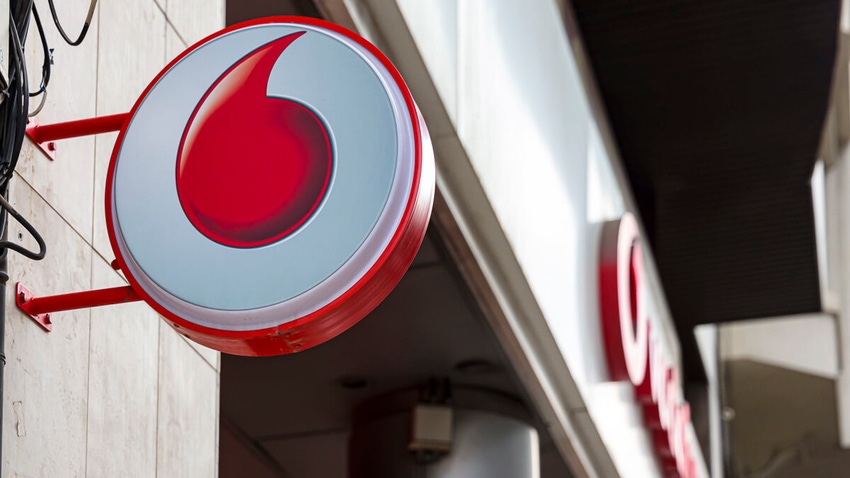Vodafone sells unprofitable Spanish unit to Zegona for €5B
Zegona deal marks an exit from a problematic and unprofitable market and comes as Vodafone continues to pursue a merger with Three in the UK.

European telecom's incredible shrinking act continues. Following earlier sector job cuts and carve-outs, Vodafone has sold its troublesome Spanish progeny to investment firm Zegona, which evidently saw enough value in the unprofitable outfit to have stumped up €5 billion (US$5.3 billion) for it in cash and shares. The upbeat message from Margherita Della Valle, Vodafone's CEO, is that the deal with help with "right-sizing" Vodafone's portfolio.
She has certainly wasted little time on the M&A front since replacing the more ponderous Nick Read as Vodafone's top executive in April. A planned merger with Three UK would solve the return-on-investment problem where Vodafone is headquartered, insist executives, leaving the country with just three mobile operators. With divestment in Spain, Vodafone rids itself of a unit in one of Europe's most irksomely competitive markets.
That shows in the figures Vodafone either published in its financials or shared in today's statement on the Zegona deal. Vodafone Spain makes about €3.9 billion ($4.2 billion) in annual revenues, the company disclosed in its most recent annual report, but generates only €947 million ($1 billion) in – deep breath – adjusted earnings before interest, tax, depreciation and amortization after leases (EBITDAaL), the overly complicated metric telcos use to monitor their profitability.
This translates to an EBITDAaL margin of 24.2%, which sounds dire given that Vodafone Germany managed 40.6% last year, while Italy reported 30.2%. Of all the Vodafone subsidiaries, only Vodafone UK did worse on 19.8%. On top of all that, service revenues at Vodafone Spain last year dropped 5.4%, making it the worst-performing country or regional asset in the Vodafone portfolio.
The Zegona deal statement features additional negatives, indicating that Vodafone Spain made a pre-tax loss of €383 million ($407 million) for the fiscal year ending in March. Vodafone had tried to improve its financial health through cuts, with staff numbers down from 5,140 in 2019 to just 3,992 last year, but this had evidently not worked. Hence the decision to cut it free.
Vodafone will receive a payment of €4.1 billion ($4.4 billion) in cash and "up to" €900 million ($957 million) in what are known as redeemable preference shares, which can be exercised no later than six years after the deal closes. Zegona will also pay Vodafone about €110 million ($117 million) each year for the provision of various services to Vodafone Spain, which retains the brand (for "up to" ten years) even though it is changing owner.
No surprises
Kester Mann, an analyst with CCS Insight, said the update did not come as a surprise after the Spanish business was put under "strategic review" earlier this year. Rumors of a deal with Zegona had been in the air for some weeks, he pointed out. "Spain has long dragged Vodafone's financial performance due to intense market competition and low returns," he said in a research note sent by email. "As such the disposal is likely to be welcomed by its long-suffering shareholders."
Ultimately, he blamed the exit on a failure to secure a merger deal with MasMovil, which is instead pursuing a joint venture with Orange. This, however, has yet to be given a green light by regional authorities. "Orange/MasMovil is a crucial alliance for the European telecom sector as it could open the door to other tie-ups if approved," said Mann. "The Commission probably wanted some clarity on Vodafone's long-term position in Spain before deciding, so today's news could help that process along."
The possibility of a merger between Orange and MasMovil might also help to explain Zegona's interest in the market. Replete with mobile networks and mobile virtual network operators, Spain today looks a bit like a crowded beach resort where all the sun loungers have already been nabbed. If Orange and MasMovil are allowed to merge, others will have room to stretch out.
Even so, making decent returns would still be tricky for a group that lacks Vodafone's experience, expertise and scale. Zegona thinks it can stabilize revenues with "new commercial initiatives" and improve efficiency by "reducing complexity and driving productivity." But such is the strategy of any modern-day telco, Vodafone included.
R&D carveout
One thing Vodafone won't be selling in Spain is the research-and-development center it operates in Malaga. This has been integral to Vodafone's assessment of chip technologies that could be used in virtualized radio access networks, where general-purpose processors and common-off-the-shelf servers would play a much bigger role.
In recent weeks Vodafone has announced plans to "codevelop" some products with Intel, combining its intellectual property with the chipmaker's silicon. "You can expect a lot of innovation in terms of algorithms that will eventually go into silicon," said Santiago Tenorio, the network architecture director of Vodafone Group, during a recent interview with Light Reading.
Proceeds from the Vodafone Spain sale could help to further reduce Vodafone's pile of net debt, down from €41.6 billion ($44.2 billion) in March 2022 to €33.4 billion ($35.5 billion) a year later. Unencumbered by the loss-making unit, Della Valle should be able to focus on parts of the empire that look healthier. "She will now be hoping to build on the Spain exit by securing vital regulatory approval to merge with Three in the UK," said Mann. A deal there would certainly put shareholders in a much better mood.
Read more about:
EuropeAbout the Author(s)
You May Also Like












